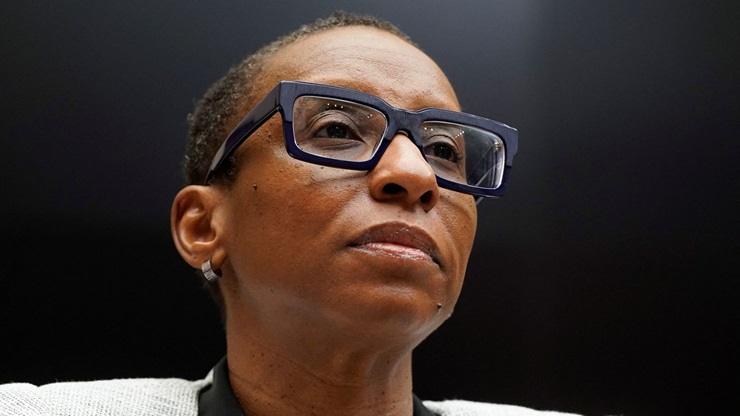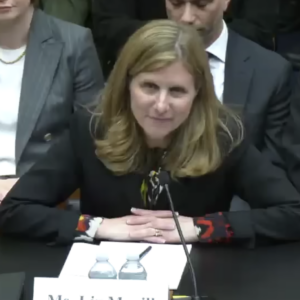Judge Dismissed Pro-Palestinian Group’s Lawsuit Against University of Pennsylvania

A federal judge denied a request for an injunction against the University of Pennsylvania that would have prevented Penn from giving Congress information about a Palestinian literary festival held at the university.
A group of professors and students called Penn Faculty for Justice in Palestine sued Penn to stop it from complying with a request for documents from a U.S. House of Representatives committee. Lawyers for Penn filed a motion to dismiss the lawsuit for lack of standing.
Judge Mitchell S. Goldberg, chief judge for the Southeastern District of Pennsylvania, dismissed the group’s lawsuit on June 24.
Lead plaintiffs Huda Fakhreddine, a professor of Arabic literature who organized the Palestine Writes Literature Festival, and Eve Troutt Powell, who teaches Middle Eastern history, did not respond to requests for comment.
Penn spokesman Ron Ozio said the university does not comment on litigation.
Jewish leaders had asked Penn to distance itself from the Palestine Writes Festival, which began Sept. 22, 2023, and overlapped Yom Kippur. It was held near Hillel, where Jewish students would worship. They also objected to listed speakers, some of whom were known antisemites, including Roger Waters of Pink Floyd fame, who supported the Boycott, Divestment and Sanctions movement and compared Israel to Nazi Germany. Another presenter listed was Marc Lamont Hill, who was fired from CNN after using the phrase “free Palestine from the river to the sea,” often viewed as a call for the destruction of Israel and the Jews who live there.
The festival preceded the Oct. 7 Hamas terrorist attack on Israel and the ensuing protests at Penn that culminated with a tent encampment.
Former Penn President Liz Magill testified before the House Education and Workforce Committee, and her remarks saying calls for Jewish genocide are allowed “in context” led to her eventual resignation.
In his opinion, Goldberg noted the House committee sent Penn a letter expressing “grave concerns regarding the inadequacy of Penn’s response to antisemitism on its campus.”
“The letter consists of a narrative of events and a document request. It mentions the Palestine Writes Literature Festival, which it states included ‘antisemitic speakers,’ and criticizes Fakhreddine by name for her statements about Israel.”
Part of the House request regarded “disciplinary … processes,” Palestine Writes Literature Festival, and various Penn-affiliated organizations and events. The letter is not a subpoena and does not legally compel Penn to produce documents. Nonetheless, Penn has indicated it will honor the Committee’s request.”
Further, the plaintiffs argued that if Penn gives the documents to the House committee, “it will “threaten” them with “a renewed and continued barrage of death and rape threats and hate speech” and could expose “members of [Penn Faculty for Justice in Palestine] who have not previously been doxxed.”
Goldberg added, “Plaintiffs thus seek an order prohibiting Penn from complying with the House Committee’s request. The plaintiffs’ complaint does not identify the documents or information they believe Penn will produce. In particular, plaintiffs do not allege whether documents Penn plans to produce would include their personal contact information such as home addresses.”
The judge found the plaintiffs did not have standing because the documents the House requested were not “defamatory” and did not have private details like their home address.
“The fact that plaintiffs were harassed before is not enough; plaintiffs need to show that Penn’s documents would contribute to that harassment,” the judge wrote.
However, he said he would allow them to refile their case if they can “in good faith” allege facts supporting their standing or right to file it.
Please follow DVJournal on social media: Twitter@DVJournal or Facebook.com/DelawareValleyJournal













